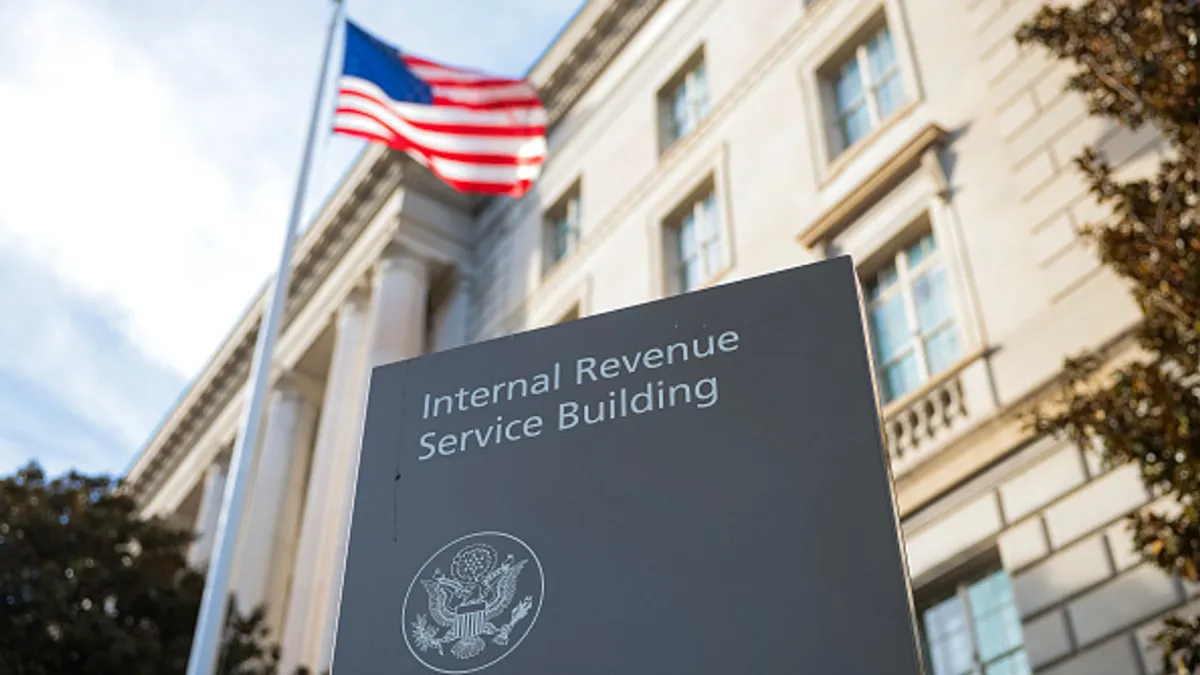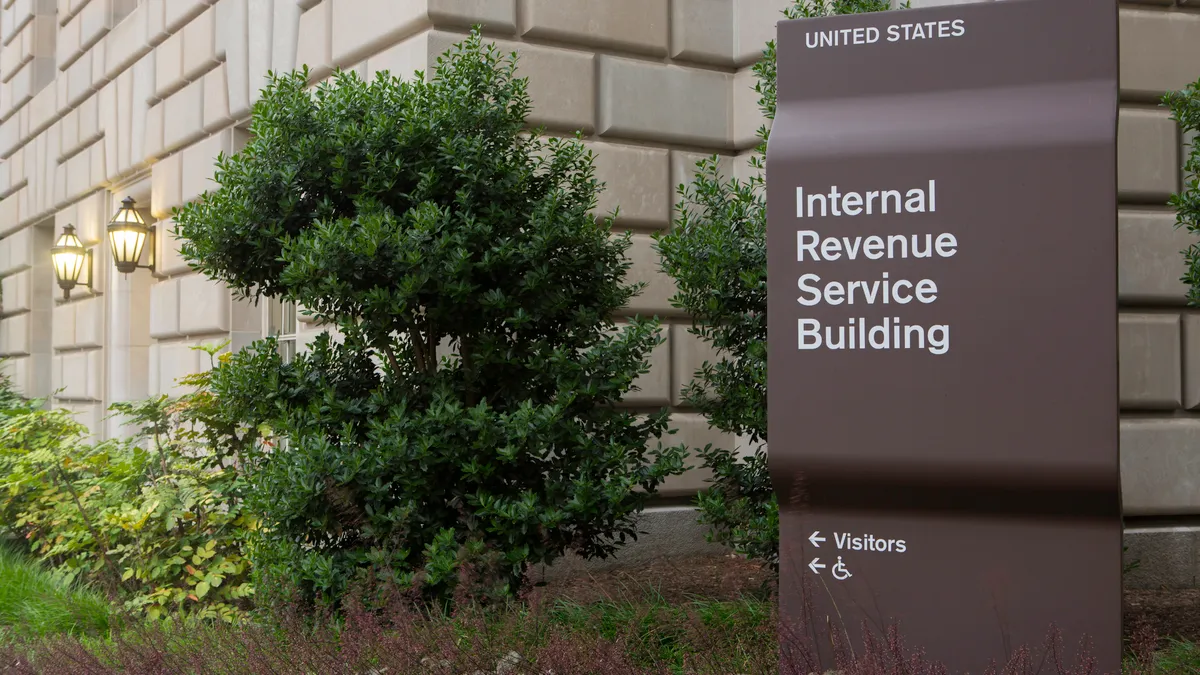The accounting talent shortage that has hamstrung the industry and many finance teams in recent years — and sparked a nationwide groundswell of support for Certified Public Accountant licensing reform — is showing some signs of easing.
The rising use of automation and generative artificial intelligence that make it easier for finance teams to complete work faster and with fewer people, along with companies’ growing appetite for outsourcing accounting to firms in such countries as the Philippines, are driving the shifts in the accounting labor landscape, according to Jack Castonguay, an associate professor of accounting at Hofstra University in New York.
“We started to see easing within the last 12 months,” Castonguay said in an interview, noting he had incorrectly believed that the shortage would persist longer but AI adoption has progressed faster than anticipated.
Layoff angst
Signs that the power may be beginning to shift toward accounting employers have bubbled up even as the most recent data available on U.S. accounting employment show slight gains in the workforce: As of May 2024, the number of workers employed as accountants and auditors in the U.S.rose to 1.448 million, from 1.435 million in 2023, according to the U.S. Bureau of Labor Statistics.
But sentiment gauges of the industry outlook are gloomier. Layoffs are looming larger in the minds of workers in accounts payable departments, according to a survey of 588 AP professionals conducted in May and released Tuesday by AvidXchange and the Institute of Finance and Management.
Nearly half (45%) of respondents said they fear layoffs compared with 27% in 2024. In preparation for potential job loss, 59% of respondents said they were learning new skills including technology, while 53% are taking on “stretch” projects and 33% are earning an advanced degree.
Separately, a report from the Controllers Council on the findings from a survey of finance and accounting executives conducted from May to July states that “despite the hype about accountant shortages,” just over half (53%) of respondents reported no shortages. One third (33%) reported minor shortages, while only 10% saw “significant” shortages.
The survey also found that overall pay increases during the past 12 months fell to 3.5%, one percentage point below the year-over-year rate in 2024.
Meanwhile, there’s concern that there will be fewer lucrative jobs at a Big Four firm that many accounting graduates pin their hopes on landing right out of college. PwC plans to cut college graduate entry-level hiring of tax and assurance associates and auditing over the next three years, Business Insider reported Aug. 21. A PwC spokesperson declined to comment on the report.
Word of the forward-looking cutbacks comes on the heels of a steady drip of layoffs by some of the largest accounting firms during the past two years or so. For example, in June of 2023, KPMG said it was laying off about 1,950 employees, or roughly 5% of its workforce, with cuts extending across all of its business, including, tax, auditing and advisory services, CFO Dive previously reported.
“I think the biggest takeaway...is PwC's intention to hire less straight out of college in 2028,” Omar Roubi, an instructor of accounting at the University of Colorado Denver, said in an email. “This could mean a tightening of the accounting labor market or it could mean they are looking for more experienced individuals early on and becoming less dependent on new hires with the advent of AI.”
Countervailing supply-side winds
In addition to technology’s impact on the demand side of the talent equation, there’s a supply-side driver that could whipsaw the workforce in the coming years: longstanding concern around a shrinking pool of college students choosing to major in accounting and enter the profession has led to a push to change CPA licensing requirements to make the process less onerous.
This year to date, at least 22 states have passed laws that provide alternative paths to becoming a licensed CPA that don’t require 150 hours of college credit, typically offering optional routes that substitute extra professional experience for a fifth year of post-secondary education.
By year-end, half of all states are expected to do so, and experts forecast most states will be on board within roughly two years. The countervailing forces have some in the industry scratching their heads.
“I’m still struggling with the bigger picture...Automation and offshoring are handling more of the routine in financial reporting, leaving American CPAs responsible for the complex, judgment-heavy work,” Jeffrey Hulett, a part-time faculty member who teaches personal finance at James Madison University wrote on LinkedIn Wednesday. “Yet current proposals to reduce licensing requirements seem to lower the bar for knowledge and competence —precisely when the market most relies on it.”
Industry-wide shortage gives way to pockets
To be sure, the accounting shortage remains a real concern for many employers and certain spaces in the accounting market.
“I don’t think we have an industry-wide shortage, I would say we have more of a role-based shortage,” Castonguay said, noting that financial reporting analysts at companies seem to be in short supply and that small- and medium-sized accounting firms are still reporting difficulties finding staff.
In addition, government entities report continued difficulty filling accounting roles. Cities and towns in states like Minnesota are still struggling to hire staff to complete audits as a shrinking pipeline of new accounting graduates have fallen short of what is needed to replace retiring baby-boomer CPAs, CFO Dive previously reported.
The Controllers Council survey underscored how today’s hiring challenges fall across a spectrum. The roles most difficult to fill were controller and assistant controllers (cited by 34% of respondents), with bookkeeper/financial reporting ranking second (27%) followed by what the report termed a “second tier” of titles including accounts payable (22), technical accountant (19%) accounts receivable (19%) and FP&A (18%).
The funnel
Still, technology is a demand-side force to be reckoned with in the accounting labor equation. As in many industries across the board, accounting firms and corporate accounting teams have leaned on AI and that has enabled them to shrink their workforce, Roubi said.
For example, accountants deploying generative AI can upgrade the level of detail of financial reports by 12% and cut 7.5 days off the time needed to complete a monthly close, a study from researchers at the Massachusetts Institute of Technology Sloan School of Management and Stanford University Business School found, CFO Dive previously reported.
“There is no longer a ‘shortage’ of talent,” Roubi said in an email. “We have grappled for years [with] a pipeline issue in the accounting industry. Now, the funnel at the end of the demand-side is going to shrink due to this leveraging of AI.”
Looking ahead, Castonguay is optimistic that the accounting labor market will even out. He expects accounting shortages at small- and medium-sized firms to wane as they adopt AI and ultimately pick up the graduates that the constrained Big Four may miss.
At the same time, he doesn’t expect a glut stemming from the licensing changes. Given that universities are bracing for a demographic-driven "enrollment cliff” as the number of high school graduates declines from its 2025 peak, Castonguay believes the changes in the CPA licensing process are needed and will help build a robust accounting labor pipeline while opening the field to a wider array of students, including minorities that have been shown to be disporportionately affected be the 150-hour rule.
“We’re approaching equilibrium but a lot of levers are being pulled at the same time,” he said.
To keep up with CPA licensure changes go to CFO Dive’s tracker on the topic here.























